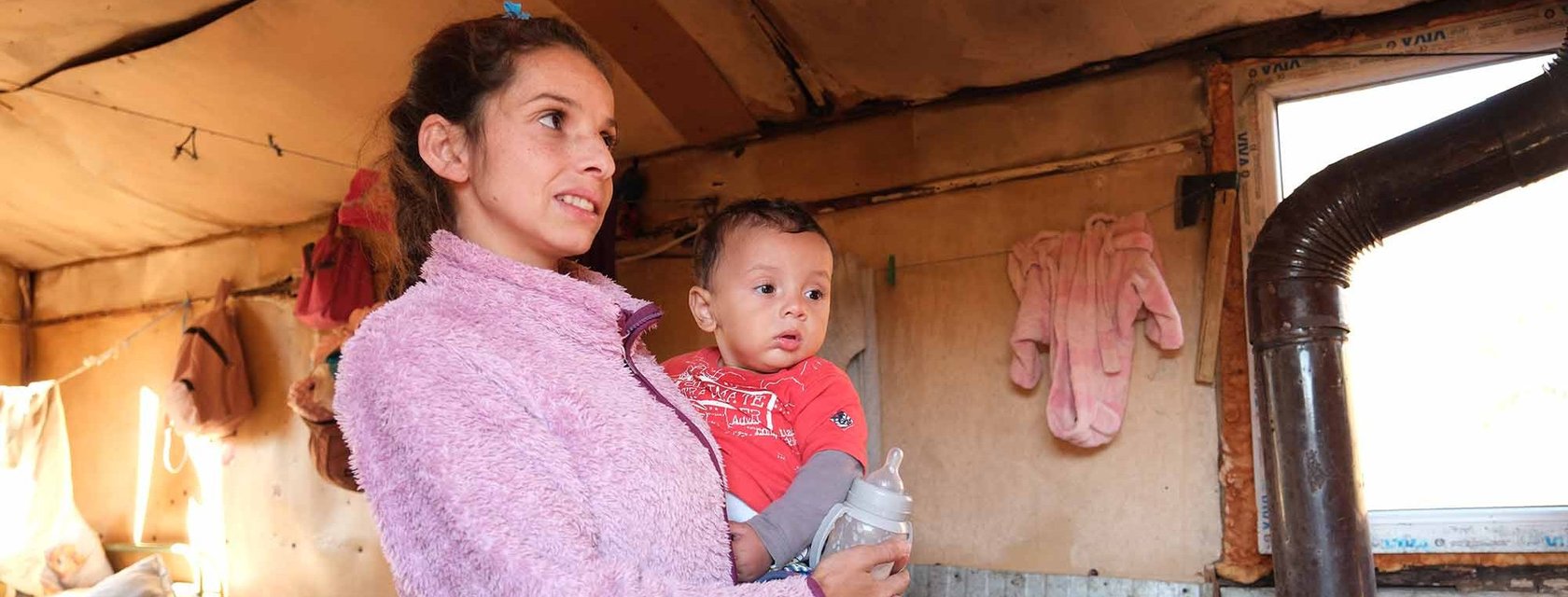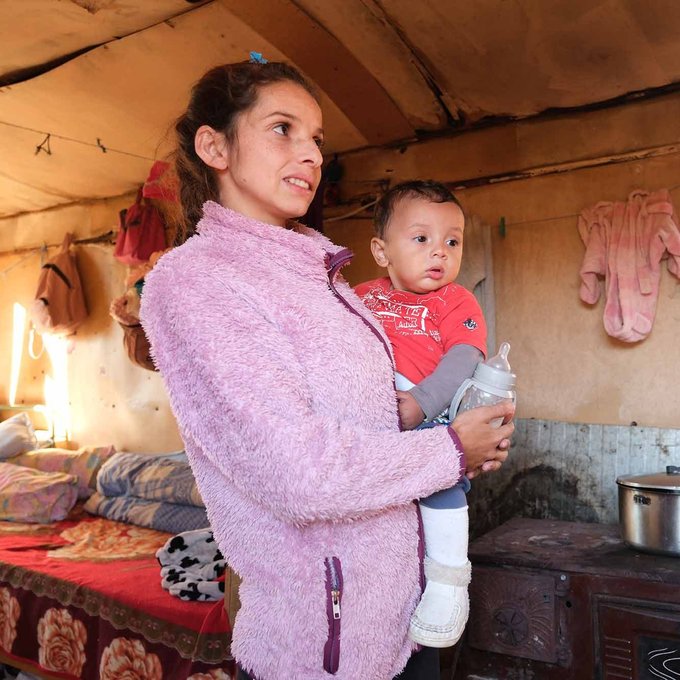CONCORDIA press trip to Bulgaria
Once a year, we have the opportunity to take a press trip to bring journalists into direct contact with the challenges faced by the people we support and to provide a broader context for our support programme.
This year, the press trip took us to our colleagues in Bulgaria. Seven journalists accepted our invitation and spent the past week taking an in-depth look at the Bulgarian education system and the realities of life for marginalised groups.
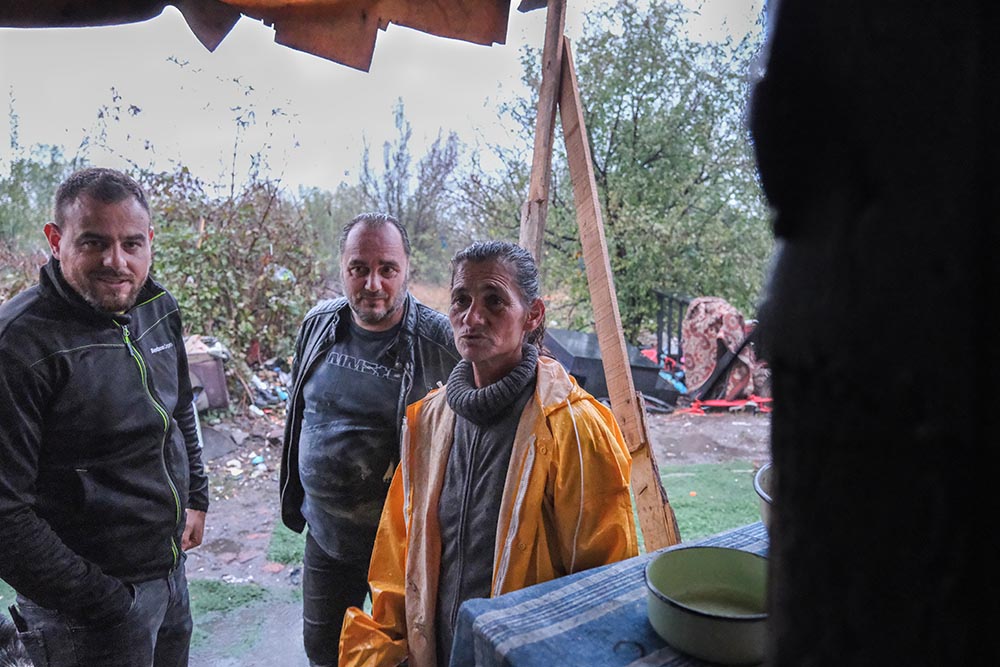
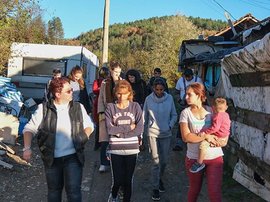
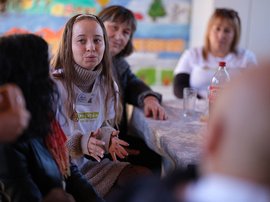
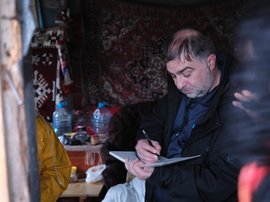

Shattering living conditions far removed from acute crises
Bulgaria has been a member of the EU together with Romania since 2007. How can we talk about misery here? Unfortunately, there is no other way to describe the living conditions in which some families in Bulgaria live. No water, no heating, no connection to infrastructure - these are people who live on the margins of society in patched-up tents and have made do. Without external support, which is lacking or too little, it is difficult to believe in a better life. Suddenly you feel much further away than just 1.5 hours by plane from Vienna.
Due to mismanagement and corruption, not nearly as much has been achieved in Bulgaria in the last decade as could have been. Bulgaria has multiple challenges to overcome. Even the current government - which has been elected five times in the last three years - is on shaky ground. Political implementation - including the lack of a concept for Bulgaria to achieve the "EU Child Guarantee by 2030" since 2018 - suffers not least from political instability. We learn from one of our external experts that there is no children's hospital in the whole of Bulgaria. There is also a failure to provide disadvantaged children and young adults with sufficient, high-quality educational opportunities. So-called "Roma schools", in which the pupils are predominantly or exclusively Roma children, exacerbate segregation and create a poor educational environment.
Bulgaria is one of the countries with the fastest shrinking population in the world.
Since the Balkan state transitioned from a totalitarian system to a free market economy three decades ago, the country's population has shrunk by almost a quarter, from almost 9 million to 6.5 million today.If this trend continues, Bulgaria's population will shrink further to around 5.4 million by 2050.(Source: National Statistics Institute) The country is also at the forefront when it comes to the level of risk of poverty and social exclusion for children.In 2021, one in three children in Bulgaria is at risk of poverty and social exclusion (33% compared to 21.7% on average in the EU-27).Roma communities in Bulgaria continue to be discriminated against despite various government policies. (Minority Rights Group Europe).
Social inclusion, compliance with children's rights in Bulgaria, dealing with vulnerable groups - we were able to arrange external interviews on these topics and challenges with the Minister of Social Affairs and Labour of Bulgaria, Dr Ivanka Shalapatova, the Director of the National Network for Children's Rights, Georgi Bogdanov, and the Director of Social Trust Achievement, Ognyan Isaev.
![[Translate to English:] Ognyan Isaev - Experte Minderheitenrechte in Bulgarien Social trust achievement](https://www.concordia.or.at/fileadmin/_processed_/3/8/csm_BU-Pressereise-Ognyan_Isaev_-_Experte_Minderheitenrechte_in_Bulgarien_Social_trust_achievement_77b8617551.jpg)
![[Translate to English:] Arbeits und Sozialministerin Dr Ivanka Shalapatova](https://www.concordia.or.at/fileadmin/_processed_/1/f/csm_BU-Pressereise-Arbeits_und_Sozialministerin_Dr_Ivanka_Shalapatova_f7503cdae4.jpg)
![[Translate to English:] Expertengespräch mit Georgi Bogdanov, Netzwerk für Kinderrechte Bulgarien](https://www.concordia.or.at/fileadmin/_processed_/f/4/csm_BU-Pressereise-Expertengespr%C3%A4ch_mit_Georgi_Bogdanov__Netzwerk_f%C3%BCr_Kinderrechte_Bulgarien_6aa0217e63.jpg)
![[Translate to English:] Georgi Bogdanov National network for children](https://www.concordia.or.at/fileadmin/_processed_/9/7/csm_BU-Pressereise-Georgi_Bogdanov_National_network_for_children_7042d6fbf5.jpg)
![[Translate to English:] Gespräch mit Arbeits und Sozialministerin Dr Ivanka Shalapatova](https://www.concordia.or.at/fileadmin/_processed_/3/b/csm_BU-Pressereise-Gespr%C3%A4ch_mit_Arbeits_und_Sozialministerin_Dr_Ivanka_Shalapatova_6afc899aa6.jpg)
During a visit to one of our day centres in Sofia and our newest day centre in the village of Malki Iskar, 80 km from Sofia, the journalists were able to talk to our professionals - social workers, psychologists and educators - and gain an insight into the actual work.
What we were also able to see was that the help is getting through and that we are making a decisive difference for children, young people and their families with our services.
We also focused on the meeting with our psychologist and social worker from the CONCORDIA crisis centre for children who have experienced violence.It is the only crisis centre in Bulgaria exclusively for children.In 2021, UNICEF Bulgaria published a detailed report on child abuse.It is the first comprehensive study of its kind for Bulgaria, as it includes the collection of data on all forms of violence against children in different settings, as well as a thorough assessment of the capacity of the relevant services to combat this phenomenon.The results are shocking: every second child (47%) up to the age of 18 has experienced some form of violence.
![[Translate to English:] Psychologin Krisenzentrum](https://www.concordia.or.at/fileadmin/_processed_/b/6/csm_BU-Pressereise-Psychologin_Krisenzentrum_c78ba23e73.jpg)
![[Translate to English:] Sozialarbeiterin Krisenzentrum](https://www.concordia.or.at/fileadmin/_processed_/9/1/csm_BU-Pressereise-Sozialarbeiterin_Krisenzentrum_592546d170.jpg)
3,654 protection orders against domestic violence were issued for 2022, 1,061 of which concern children 2,355 orders were issued by the end of July 2023, and the number of children for the same period is 768. (UNICEF)
The editorial contributions produced during the press trip are linked here with publication.
Compliance Note: The trip was financed by CONCORDIA sponsors.


